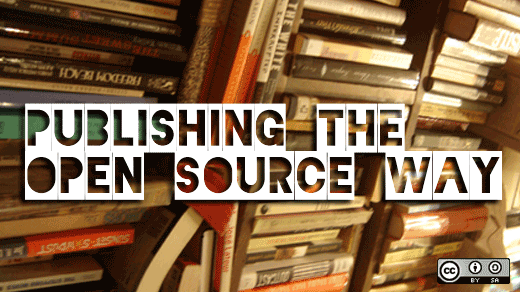I'm a big fan of Scott Nesbitt's writing, which has a technological bent, but is usually more about working effectively, rather than how tools can make you effective, which is a key distinction. Scott's setup reflects his focus on production rather than tweaking. He has his work tools and everything else is pretty much white noise—which is why LXDE/Lubuntu probably makes a lot of sense for his workflow.
It's simple and it stays out of his way. Scott also gets bonus points for moving his family to Linux. That's a tough move, but given that his wife stole his ZaReason laptop, the conversion seems to have taken.

Who are you, and what do you do?
My name is Scott Nesbitt, and I'm a writer, blogger (here and here, too), and technology coach based in Auckland, New Zealand.
I'm not a developer or techie, even though I am a recovering technical communicator. My goal with using Linux isn't to hack—although I do write the occasional shell, Perl, or Python script. Instead, my goal is to do my work, which mainly is writing and publishing.
Which leads us to...
Why do you use Linux?
The short answer: It works for me.
The longer answer: Back in late 1999, I was a reluctant and disgruntled Windows user. The incident that finally drove me away from Windows came late one evening that year. I was working on a report for a freelance writing client and Windows crashed. I lost most of my work. Frustration and anger don't reflect what I was feeling at the time.
A couple of days later, I was whiling away some time between meetings at an office supply store when I noticed a boxed copy of Caldera OpenLinux Base on sale for $20. On a whim, I bought it and installed OpenLinux on the Pentium 300 system my wife had recently moved on from. Except for some initial weirdness with the size of the display (which I quickly corrected), installing and using OpenLinux was smoother than I expected.
Over the years, I moved from that desktop to a series of laptops running Debian, Xandros, JoliOS, Ubuntu, Xubuntu, Peppermint OS, Linux Mint, Linux Lite, and Lubuntu. I've also tested a number of other distros using a live CD or a live USB. With the distros that I wound up using, I was always pleasantly surprised at how easy they were to install and how each detected my hardware.
My household now uses Linux exclusively. In fact, I run most of my life on free and open source software. I converted my daughter to Linux about four years ago, and my wife jumped on the Linux Mint bandwagon in 2012.
For what I need to do—writing and publishing, and a bit more—Linux just works. I keep repeating that, but it's true. Linux works for me. I really don't care what Linux does or doesn't do for other people. I only care about what it does for me and what it lets me do. And that's pretty much everything.
While I'd been using free software since the mid 1990s, switching to Linux got me deeper into free/libre/open source world. I went from using it to writing and speaking about it. On top of that, I've met a number of wonderful and interesting people who work on various FLOSS projects.
What distribution do you run on your main desktop/laptop?
Right now, I use Lubuntu 14.04. I moved to Lubuntu after testing it for a blog post I was writing. It grew on me quite quickly. I also like that Lubuntu is fast, fairly lean, functional, and easy to use. It also looks pretty good (not that I'm overly hung up on looks!).
What desktop environment do you use and why do you use it?
LXDE. That's the stock desktop environment in Lubuntu. It works fine, and I see no reason to change it. To be honest, I'm not really a desktop environment partisan. I've used several and they all have their good and not-so-good points. It's just a matter of adapting.
In case you're wondering, I do like Unity.
What one piece of software do you depend upon with this distribution? Why is it so important?
There's no one piece of software that I depend upon above all others. Instead, there are specific applications that I depend on for certain tasks. Here are a few examples:
- When I'm writing an ebook I use Sigil (for EPUB) or LyX (for PDF)
- Inkscape, The GIMP, and Shutter take care of most of my graphics needs
- I write articles and blog posts using UberWriter (my favorite Markdown editor) or LibreOffice Writer
- For web browsing, it's Firefox or Chromium
- I play most of my video and audio with VLC or Clementine
Don't get me wrong: I don't overload my system with software. But I prefer my apps to be very focused—they should do one or two things well, and I don't worry about so-called "missing" functionality (whatever that term means).
What kind of hardware do you run this setup on?
My laptop is an Acer Aspire 5742Z with a 15.6" LED LCD screen, 6GB DDR3 memory, and a 500GB hard drive. I know there are some who would consider those specs to be underwhelming, but they're more than good enough for what I need to do.
This laptop is a hand-me-down from my wife. Over the last couple of years, she somehow managed to serial kill three hard drives on that computer. I don't know how, either... Earlier this year, I had to decide whether to sell the laptop for parts or take one more shot at bringing it back to life. I took the latter route, and it worked. The laptop has been humming along nicely ever since.
In case you're wondering, while the Acer machine was out of action, my wife hijacked my ZaReason Alto laptop running Linux Mint. The Alto isn't my laptop anymore, and I suspect that I'll be prying it from her cold, dead hands.
Will you share a screenshot of your desktop?
Sure. Prepared to be bored! I aim for a very clean desktop—no icons. Although I do change the wallpaper every so often. I usually launch applications by clicking one of the (few) icons on the task bar or using Kupfer (a nifty app launcher).
Interview conducted May 26, 2014. The Linux Setup is a feature where I interview people about their Linux setups. The concept is borrowed, if not outright stolen, from this site. If you'd like to participate, drop me a line. You can follow My Linux Rig on Google+ here, follow me on Twitter here, and subscribe to the feed here.
Originally published at The Linux Setup and reposted here via a Creative Commons license.




4 Comments